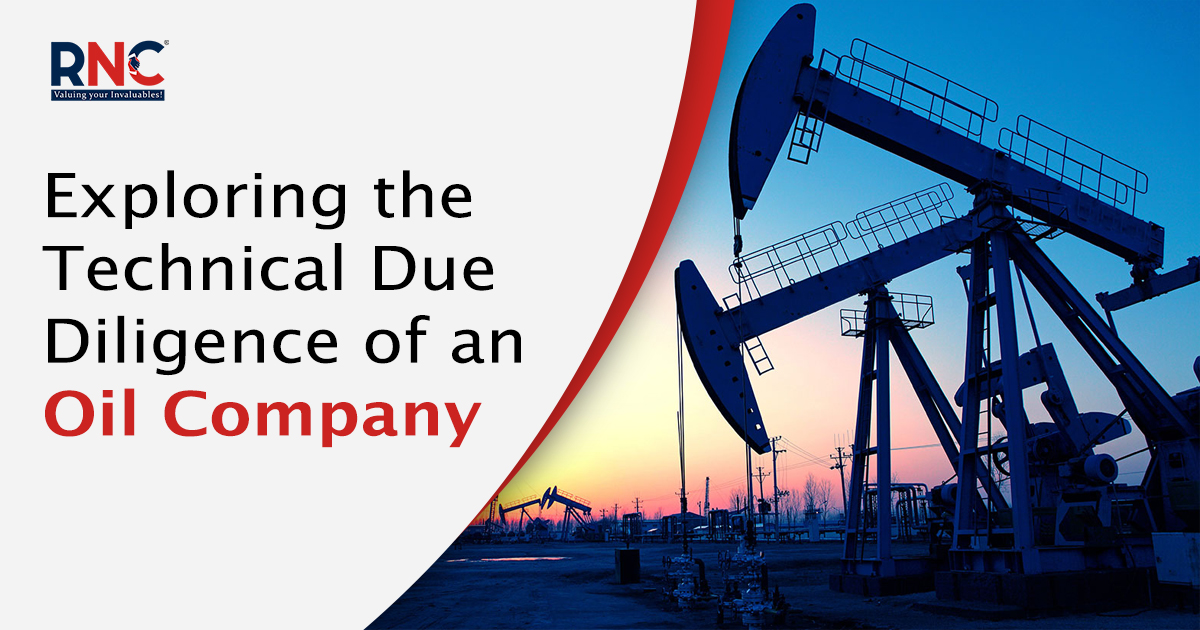
Introduction:
Technical due diligence plays a crucial role in assessing the operational and technical aspects of an Oil company. A Private Equity Firm considers acquiring a stake in a mid-sized Oil Company. The Equity firm decides to evaluate feasibility, operational efficiency & potential risks involved.
1. Oil & Gas Reservoir Evaluation:
– Petroleum engineers and geologists assess the quality and quantity of reserves.
– Evaluates porosity, permeability and fluid properties of the reserves
– Analyze production history, decline curves, recovery factors
2. Production Facilities and Infrastructure:
– Engineers inspect the production facilities, including wellheads, processing plants, pipelines, and storage tanks.
– Assess the condition, capacity, and efficiency of equipment and infrastructure
– Identify maintenance issues, potential upgrades & compliance with environmental regulations.
3. Field Development Plans:
– Experts review the field development plans and exploration strategies
– Assess technical challenges such as drilling costs, well spacing, and reservoir management techniques.
– Evaluate technology adoption, innovation initiatives, and strategic partnerships
4. Health, Safety, and Environmental Compliance:
– Experts audit the compliance with environmental regulations and sustainability practices.
– Evaluate risk management protocols, emergency response plans, and environmental impact.
– Occupational health and safety standards are reviewed.
5. Regulatory and Legal Considerations:
– Legal experts review the regulatory filings, permits, licenses, agreements
– Assess compliance with government regulations, taxation policies and identify legal risks or litigations.
– Evaluate Intellectual property rights, patents, and technology licenses related to exploration and production activities
Case Study: Refinery Acquisition in India (2024)
In 2024, a global energy firm planned to acquire a mid-sized refinery in India. During technical due diligence, several red flags emerged—outdated safety systems, incomplete regulatory approvals, and pending environmental clearances. As a result, the refinery’s valuation was revised downward by nearly 15%, saving the acquirer from significant financial risk and potential overpayment. This case highlights how due diligence directly impacts the accuracy and fairness of oil & gas valuations.
Steps in Technical Due Diligence
| Step in Due Diligence | Key Focus Area | Impact on Valuation |
| Asset Inspection | Machinery, pipelines, plants | Identifies asset condition |
| Regulatory Compliance | ESG, safety, govt approvals | Can reduce risk premium |
| Financial-Technical Link | Capex vs asset productivity | Aligns technical with financial |
| Environmental Review | Pollution & ESG standards | Adds/reduces long-term value |
Conclusion:
Conducting a comprehensive technical due diligence into the Oil Company’s operational and technical aspects, helped them make informed investment decisions, risk mitigation strategies, and potential value-creation opportunities.
Planning an Oil & Gas Acquisition or Investment?
Our Registered Valuers provide expert technical due diligence and valuation support for oil & gas companies.
Book your consultation with RNC
Read More Case studies :
FAQs
1. What is technical due diligence in oil companies?
It is a detailed review of assets, compliance, and risks before acquisition, investment, or restructuring.
2. Why is technical due diligence critical in oil & gas valuations?
It reveals hidden risks—such as regulatory gaps or asset inefficiencies—that can impact valuation and deal success.
3. What factors affect oil company valuations in 2025?
Key factors include ESG compliance, global oil price volatility, asset age, and government regulations.

About the author:
Sahil Narula
Sahil Narula is the Managing Partner at RNC Valuecon LLP and a Registered Valuer with IBBI. He brings over a decade of experience in Valuation Services, Corporate Finance, and Advisory, having led numerous complex assignments under the Insolvency & Bankruptcy Code, 2016, Mergers & Acquisitions, Insurance, and Financial Reporting.
He is a regular speaker at national forums (ASSOCHAM, CII, ICAI, IBBI, Legal Era) and currently serves as Co-Chairman of ASSOCHAM’s National Council on Insolvency & Valuations and a member of CII’s Task Force on Insolvency & Bankruptcy.
🤝Connect with Sahil on LinkedIn.
